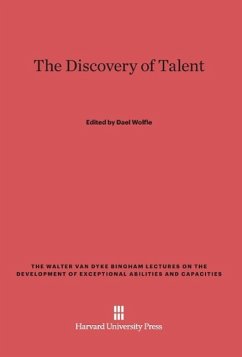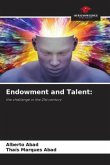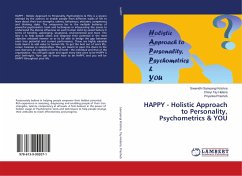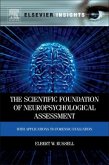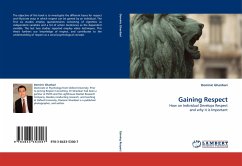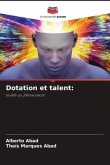Finding the talented, encouraging their advancement, making known their potentialities"--to these aims many of the twentieth century's most distinguished psychologists have turned their attention. In this book, Terman, Paterson, Burt, Strong, Guilford, Wolfie, Stalnaker, MacKinnon, Ghiselli, Mackworth, and Vernon, each with his own particular emphasis, discuss these issues as lecturers in a series set up by their colleague, Walter Van Dyke Bingham. In sum, they present a cross section of psychological thought at mid-century, each man writing about the set of problems on which his interest has centered.
Assuming that the concept of intelligence is essential to the study of talent, they give their attention to other variables--health, physical energy and work habits, maturation, education, parental advantage, and the like. Terman, for example, discusses the personality traits that make for success, while Strong describes his and others' efforts to measure vocational interests. Burt looks at the inheritance of emotional and temperamental qualities that affect the way one works and the amount one achieves. MacKinnon, Chiselli, and Mackworth concentrate on important kinds of ability that are not well measured by any of the available tests of "intelligence."
Today, these pioneering scholars stand high on the list of those who have advanced the discovery and development of talent. Many of these articles are already classics, and their publication in one volume will provide a ready reference and an important impetus to further work in their area of interest. These eleven lectures, provided for by the late Walter Van Dyke Bingham and presented at a different university each year, were delivered between 1956 and 1965.
Assuming that the concept of intelligence is essential to the study of talent, they give their attention to other variables--health, physical energy and work habits, maturation, education, parental advantage, and the like. Terman, for example, discusses the personality traits that make for success, while Strong describes his and others' efforts to measure vocational interests. Burt looks at the inheritance of emotional and temperamental qualities that affect the way one works and the amount one achieves. MacKinnon, Chiselli, and Mackworth concentrate on important kinds of ability that are not well measured by any of the available tests of "intelligence."
Today, these pioneering scholars stand high on the list of those who have advanced the discovery and development of talent. Many of these articles are already classics, and their publication in one volume will provide a ready reference and an important impetus to further work in their area of interest. These eleven lectures, provided for by the late Walter Van Dyke Bingham and presented at a different university each year, were delivered between 1956 and 1965.

